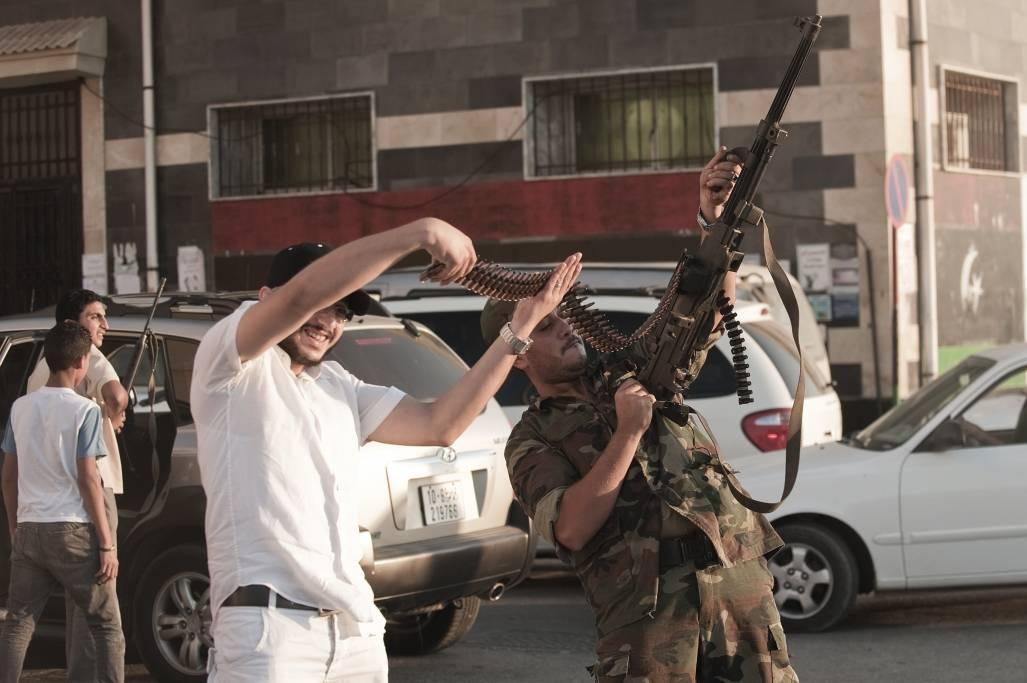As Libyans celebrate, rebels don’t see where their bullets fall
Don’t try this at home: A Libyan rebel fires a machine gun into the air in celebration.
Ever looked at footage of Libyan rebels shooting automatic weapons into the air and wondered what happens when the bullets come back down?
The BBC has asked the same question and found that celebratory gunfire is, surprise surprise, often deadly. It cited a 1962 study showing .30 calibre rounds can reach skull-splitting velocity as they fall.
"These bullets go a long way up when they're fired," ballistics expert David Dyson said.
"But you don't know where they're going to land – there's always a chance of them causing serious harm or death."
Celebratory gunfire killed three people in the Philippines on New Year's Eve this year. In 2010, the BBC reported, a Turkish bridegroom killed three relatives when he fired an AK-47 at his own wedding.
Three people died from falling bullets in Baghdad in 2007 after the Iraqi football team defeated Vietnam.
And it's not a problem that's limited to war zones and developing countries. One Los Angeles medical center reported 38 deaths from random "falling-bullet injuries" between 1985 and 1992.
Public campaigns against celebratory gunfire have been waged in the former Yugoslav republics of Serbia and Macedonia, as well as Jordan. The practice is outlawed in US states including California, Texas, Arizona and Ohio.
The article you just read is free because dedicated readers and listeners like you chose to support our nonprofit newsroom. Our team works tirelessly to ensure you hear the latest in international, human-centered reporting every weekday. But our work would not be possible without you. We need your help.
Make a gift today to help us reach our $25,000 goal and keep The World going strong. Every gift will get us one step closer.
